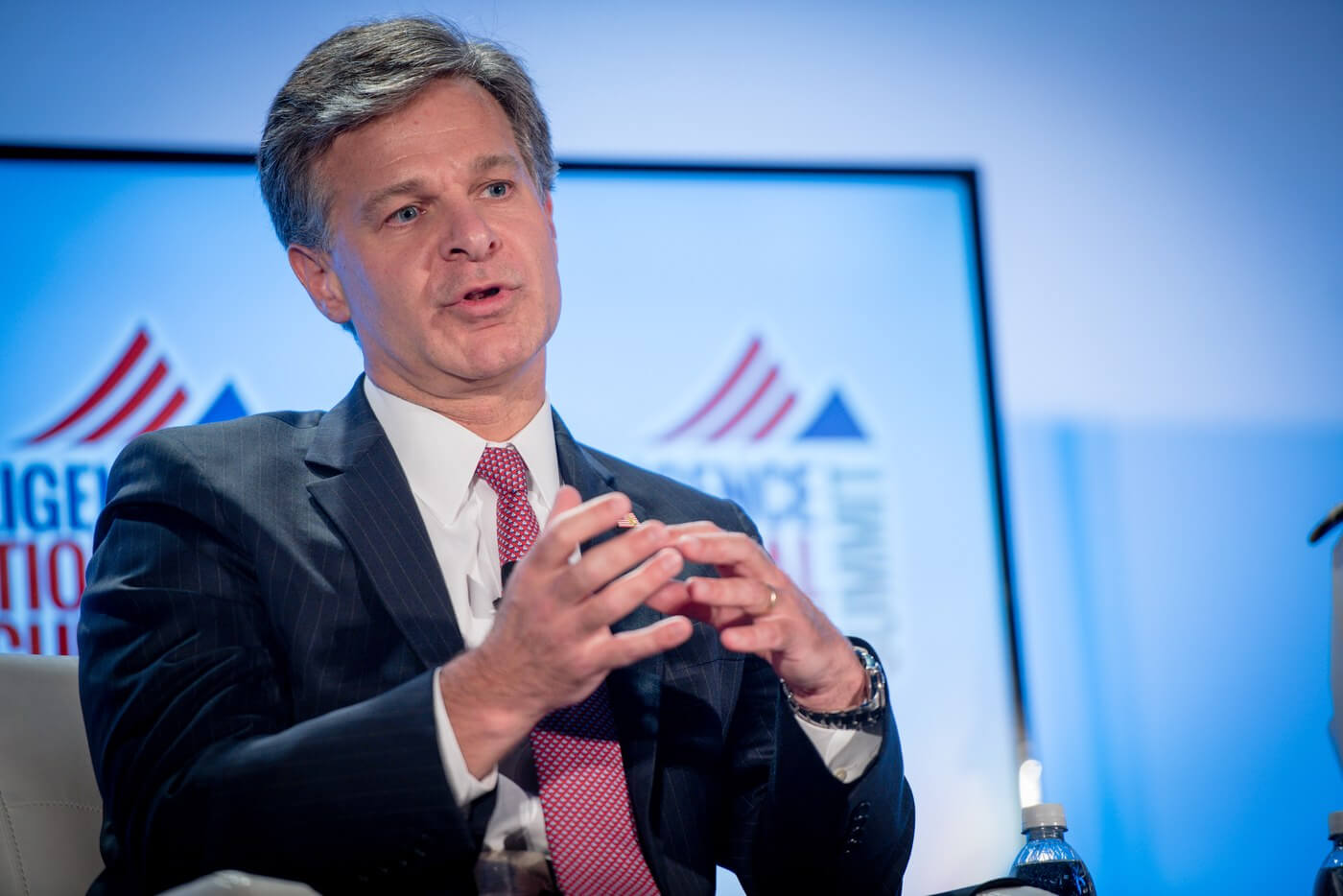FBI director Christopher Wray looks set to reignite the security vs privacy debate after revealing that his agency failed to access "more than half" the devices it recently tried to unlock. In the first 11 months of the fiscal year, agents couldn't extract data from almost 7,000 mobile devices.
"To put it mildly, this is a huge, huge problem," Wray told the International Association of Chiefs of Police conference in Philadelphia. "It impacts investigations across the board---narcotics, human trafficking, counterterrorism, counterintelligence, gangs, organized crime, child exploitation."
The encryption argument is one that often appears in the wake of terrorist attacks, and it reached new levels during the San Bernardino iPhone case last year. A judge had ordered Apple to help the FBI access the locked iPhone 5c that belonged to Syed Rizwan Farook, one of the San Bernardino shooters. The company fought the decision, arguing that creating such a backdoor would ultimately enable governments and hackers to breach people's devices.
The FBI eventually turned to a third party for help unlocking Farook's iPhone. While it's widely suspected it paid $900,000 to Israeli firm Cellebrite for assistance, a federal court earlier this month ruled that the agency doesn't have to reveal who helped it or how much it cost.
Wray said that there needs to be a balance between using encryption and allowing government agencies access to devices.
"I get it, there's a balance that needs to be struck between encryption and the importance of giving us the tools we need to keep the public safe," he said.
Wray also mentioned the increasing threats faced by homegrown extremists and foreign terror organizations, which may have been his way of convincing people that backdoors are necessary. "The threats that we face keep accumulating, they are complex, they are varied," the director added.
The US isn't the only country where authorities are battling encryption. Through the Investigatory Powers Bill, aka the Snooper's Charter, the UK has one of the most extreme surveillance laws ever passed in a democracy and has long called for weakened encryption. In August, Home Secretary Amber Rudd said that "real people" don't care about such security features.
